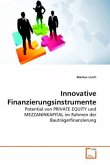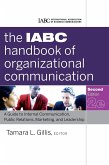In today s highly uncertain, turbulent world,
traditional risk management methods are inadequate
when managing operational risk within the Telecomms
industry. In this book we attempt to bring theory
and practice together in meeting the contemporary
challenge of managing risk in dynamic, turbulent and
highly uncertain environments. Through a multi-
method research strategy involving interviews with
leading telecomms risk consultants and surveys of
risk professionals from 100 telecomms organizations
spread over 40 countries worldwide, this empirical
study investigates the determinants of risk method,
addressing risk management as a part of corporate
governance and new participatory risk theory. Real
world risk decision-making is described and
evaluated against decision frameworks and the
quality of risk decision-making found lacking
through poor judgement. We conclude that risk method
must adopt a more subjective, constructionist
perspective in the present telecomms environment and
controls must support multiple needs of flexibility,
empowerment, creativity, and timely responsive
corrective action.
traditional risk management methods are inadequate
when managing operational risk within the Telecomms
industry. In this book we attempt to bring theory
and practice together in meeting the contemporary
challenge of managing risk in dynamic, turbulent and
highly uncertain environments. Through a multi-
method research strategy involving interviews with
leading telecomms risk consultants and surveys of
risk professionals from 100 telecomms organizations
spread over 40 countries worldwide, this empirical
study investigates the determinants of risk method,
addressing risk management as a part of corporate
governance and new participatory risk theory. Real
world risk decision-making is described and
evaluated against decision frameworks and the
quality of risk decision-making found lacking
through poor judgement. We conclude that risk method
must adopt a more subjective, constructionist
perspective in the present telecomms environment and
controls must support multiple needs of flexibility,
empowerment, creativity, and timely responsive
corrective action.








